NGO WORK
Cadastre disaster
Published
2 years agoon
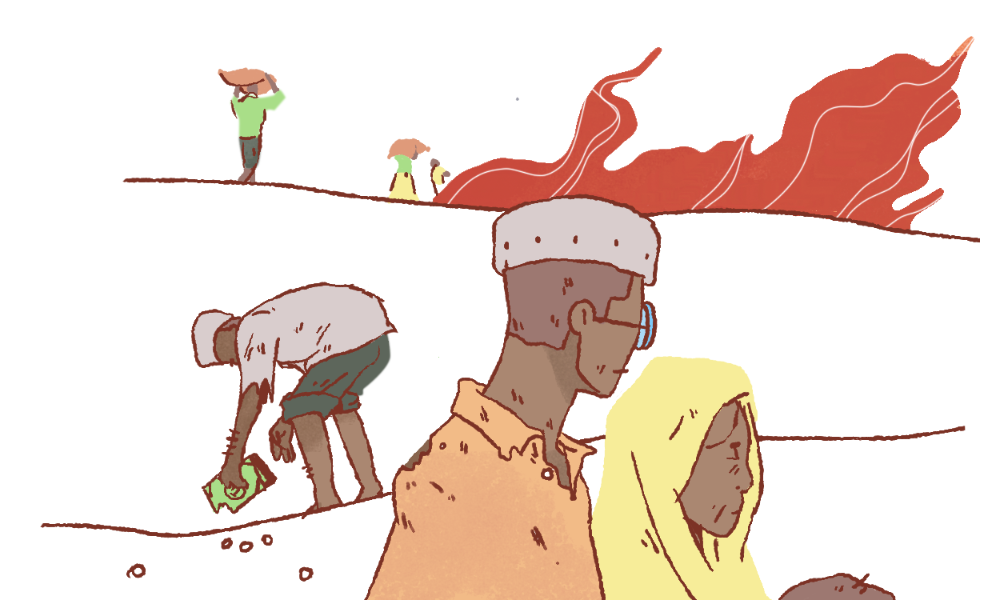
Brazil’s Cerrado region, the most biodiverse savannah in the world, is home to the geraizeiros, a native population of mixed Afro-Indigenous and European descent. Since their arrival in western Bahia over 200 years ago, the geraizeiros have lived in small villages in the savannah lowlands (baixões) and the plateaus (chapadas), cultivating the land with care and respect.
However, because many geraizeiros lack official deeds to the lands they live and work on, companies have recently been able to expand into the region and kick them off of the land they have occupied for decades. These companies laid claim to vast swaths of uncultivated land in the Cerrado before converting the native vegetation to soy, corn, and cotton monocultures.
The Teachers Insurance and Annuity Association of America alone has acquired at least 800,000 acres of farmland in Brazil, primarily in the Cerrado region. These aggressive business practices have severely impacted the geraizeiros, leaving most of them displaced and disconnected from their ancestral lands.
“Sadly, the story of the geraizeiros is not unique: Native communities across South America have faced similar fates.”
In recent years, many countries in South America have been digitizing their land registries and establishing online databases that serve as birth certificates for rural properties.
While land registries are not inherently harmful, mega-agribusiness corporations such as Cargill and Archer-Daniels-Midland use these registries as well as georeferencing technologies to deceitfully obtain property deeds that deprive Indigenous communities of their ancestral lands. But by working with non-governmental organizations and increasing oversight, South American governments can curb this continued land theft.
Although digital registries are relatively new, the ethos underlying their exploitative use is not. During the colonial period, debates over land registration and ownership in South America were often at the forefront of violent conflicts between European colonizers and the Indigenous groups they displaced.
Since then, land-grabbers have capitalized on the general lack of centralized land registration systems and regulatory policies to claim ownership of community-owned lands without legal deeds.
In 2020, GRAIN, a small international non-profit organization supporting small farmers and community-controlled food systems, launched an investigation into how these new digital systems function. In its report, GRAIN argues that in several areas of rapid agribusiness expansion in South America, the digital system is “validating the historic process of land grabs.” Rather than recognizing the long-standing land claims of traditional communities, the report alleges, the system is expelling native communities from ancestral lands that they have occupied for decades or even centuries. Affected communities live in regions including the Llanos Orientales of Colombia, four states in the Brazilian Cerrado ecoregion, and three areas along the Paraná River.
Within each of these regions, landowners are required to register their land in what is formally known as a georeferenced cadastre—a supposedly exhaustive record of a given country’s property—if they wish to acquire the legal land deed, bank credits, and loans. Since the World Bank partially funds the cadastre process in many South American countries, georeferencing tools allow the international financial sector to play a decisive and expanding role in converting community-held rainforests and savannahs into agribusiness land.
In Brazil, for example, the World Bank shelled out $45.5 million for the digital registration of private rural properties in the country’s rural environmental cadastre, allowing it to generate income from investments in agroforestry systems.
Unsurprisingly, this outsourcing of power and authority has had dire consequences for many indigenous communities. The cadastre system inherently caters to the needs of large companies and private actors who want to register individually owned allotments of land.
The bureaucracy of cadastral documentation, coupled with the rigidity of the cadastral system’s definition of land ownership, makes it difficult for some native communities—who collectively occupy their land—to register their plots.
Cadastres’ early iterations fail to record land occupation by these communities, making them “illegal trespassers” on the property they work and live on. The new landowners can then use the official cadastre and georeferencing records to go to court and evict traditional communal owners. Condoned by the rampant corruption in rural municipalities and courts, this sequence is disturbingly common.
Although much of this problem stems from misuse of georeferencing technology, the issue calls for a political solution. Local and national governments must put agrarian reform and collective land ownership issues on their political agendas.
Governmental land use groups and agencies—the South American equivalents to the United States Bureau of Land Management—should allocate public lands to rural peoples in order to guarantee their collective territorial rights.
Digital georeferencing techniques for land demarcation can and must be backed up by traditional ground truthing surveys. And rather than taking prospective landowners’ claims at face value, governments must independently verify them via a centralized land registration system organized to resolve conflicts.
Even if the government does not act, there are still a number of ways to guarantee land rights for Indigenous communities and other rural peoples. In 2019, the International Land Coalition (ILC) published “ILC Toolkit #9: Effective Actions Against Land Grabbing,” describing several strategies that landowners and activists alike can use to combat the global land-grabbing phenomenon.
One of the primary ways the ILC encourages local groups to resist land-grabbing is through the development of community land registries, which allow landowners to register their customary land rights into a government cadastre and obtain formal land titles or certificates. This process helps integrate many indigenous peoples’ customary rights into the legal system and establishes proper land rights that help communities protect their lands.
The Higaonon, an indigenous tribe in the Mindanao region of the Philippines, has successfully implemented this practice and holds much of its land under customary tenure systems.
Still, the lack of clear boundaries between neighboring groups has led to many disputes. In response, the Higaonon applied for a Certificate of Ancestral Domain Title (CADT), a formal land ownership title. However, despite their efforts, the National Commission on Indigenous Peoples has only formally registered 50 CADTs, limiting their effectiveness in protecting indigenous land.
Traditional knowledge and production systems—existing sustainably on communally held land—protect natural resources and are vital for human survival. But the longevity and viability of these systems are being put at risk by the “digital land grab.” We must do everything in our power to stop it.
Source: Farmlandgrab
Related posts:
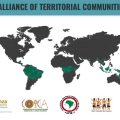
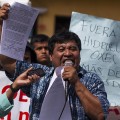 Global Mobilisation to End the Criminalisation of Land Rights Defenders
Global Mobilisation to End the Criminalisation of Land Rights Defenders
 Rights and Resources Initiative (RRI) launched a new report looking at 80 legal frameworks
Rights and Resources Initiative (RRI) launched a new report looking at 80 legal frameworks
 #COP27: HUMAN RIGHTS ADVOCATES URGE PARTIES TO INCREASE RECOGNITION AND PROTECTION OF ENVIRONMENTAL AND LAND DEFENDERS.
#COP27: HUMAN RIGHTS ADVOCATES URGE PARTIES TO INCREASE RECOGNITION AND PROTECTION OF ENVIRONMENTAL AND LAND DEFENDERS.
 La Via Campesina Call to Action for the 27th UN Climate COP
La Via Campesina Call to Action for the 27th UN Climate COP
You may like
NGO WORK
World Bank-Funded TANAPA Rangers Murder Two Villagers in Ruaha National Park
Published
1 month agoon
May 22, 2025In the last two weeks, TANAPA rangers have killed two villagers within the disputed boundaries of the Ruaha National Park in Tanzania. These murders shatter promises made just a month ago by the Tanzanian government and the World Bank to end ranger violence and allow livelihood activities to continue within the park.
On April 26, 2025, six fishermen were confronted by rangers outside of Mwanjurwa, near Ikanutwa and Nyeregete villages in the Ihefu Basin. As they tried to escape, rangers shot 27-year-old Hamprey Mhaki in the back. It is believed that Mr. Mhaki succumbed to his gunshot wound, as the search party only found a large amount of blood where he was last seen. He remains missing – while his pregnant wife and grieving family search for answers and demand justice.

In another incident, on May 7, 2025, a group of herders and their cattle in the Udunguzi sub-village of Iyala village were attacked by a TANAPA helicopter that opened fire with live ammunition. Eyewitnesses report that Kulwa Igembe, a 20-year-old Sukuma herder, was shot in the chest by one of the rangers on the ground. He died at the scene. Mr. Igembe is survived by his widow and young daughter.
According to Tanzanian media, four TANAPA rangers are being held by the Mbeya Regional Police Force for their involvement in Mr. Igembe’s killing. His body remains at the Mochwari Mission hospital, as his family has refused to proceed with burial until authorities conduct a full and transparent investigation. Furthermore, local sources state that over 1,000 cattle belonging to several herders were seized and impounded at the Madundasi ranger post following the attack. About 500 cattle have been reclaimed after herders paid TSh100,000 per head [US$37] in fines – delivering a substantial financial blow.
The Bank’s REGROW project, now cancelled, built the enforcement capacity of the rangers who committed these murders. In the 2024 investigation by its Inspection Panel, the Bank conceded that by “enhancing TANAPA’s capacity to enforce the law,” the project “increased the possibility of violent confrontations” between rangers and villagers. The Panel found the Bank to have failed to adequately supervise TANAPA and ignored rangers use of “excessive force,” in violation of international standards. Already over the course of the REGROW project, at least 11 individuals were killed by police or rangers, five disappeared, and dozens suffered physical and psychological harm, including torture and sexual violence.
“The murders of Mr. Igembe and Mr. Mhaki make it painfully clear that the Tanzanian government has no intent to end atrocities against local communities for tourist revenue. These brutal actions not only constitute abject crimes but are also a blatant violation of the commitments the government made to the World Bank,” said Anuradha Mittal, Executive Director of the Oakland Institute. “The Bank created a monster in TANAPA and must be held accountable along with the rogue ranger force,” Mittal added.
In its April 2, 2025 press release, the World Bank stated that “The Government of Tanzania has committed to implementing the MAP [Management Action Plan], and the World Bank will support and supervise its implementation.” The Action Plan is based on the premise that the government will honor its now broken promise that there will be no resettlement and villagers can continue their livelihood activities, like grazing and fishing. Iyala village, where Mr. Igembe was killed, is one of the five villages consumed by the October 2023 expansion of Ruaha National Park.
The Bank also committed to addressing violence by TANAPA rangers through a grievance mechanism and trainings on “relevant good international practice in protected area management.” Unfortunately, the Oakland Institute’s warning to the Bank’s officials, that given the extent of TANAPA’s human rights abuses, these measures would fail in preventing future harms, has come true.
“The violence hasn’t stopped. Villagers are being killed, their cattle stolen, their lives destroyed. Local communities are desperate for the world to listen. The Oakland Institute joins them in demanding that the World Bank take responsibility and act now. Every day of silence costs lives. The victims and their families deserve justice, truth, and the chance to live without fear,” concluded Mittal.
Source:The Oakland Institute
Related posts:

 The World Bank Must Be Held Accountable for Harm Inflicted on Tanzanian Communities by Tourism Project
The World Bank Must Be Held Accountable for Harm Inflicted on Tanzanian Communities by Tourism Project
 Campaign Victory: World Bank Suspends Funding for REGROW, a Conservation Project Responsible for Evictions & Human Rights Abuses in Tanzania
Campaign Victory: World Bank Suspends Funding for REGROW, a Conservation Project Responsible for Evictions & Human Rights Abuses in Tanzania
 URGENT ALERT: Tanzanian Government on a Rampage Against Indigenous People
URGENT ALERT: Tanzanian Government on a Rampage Against Indigenous People
NGO WORK
Defending rights and realising just economies: Human rights defenders and business (2015-2024)
Published
1 month agoon
May 22, 2025
Over the past decade, human rights defenders (HRDs) have courageously organised to stop corporate abuse and prevent business activities from causing harm – exposing human rights and environmental violations, demanding accountability, and advocating for rights-respecting economic practices. From Indigenous Peoples protecting forests from mining activities to journalists exposing health and environmental harms related to logging to workers advocating for better conditions in the garment sector, HRDs are at the forefront of creating a more equitable, sustainable and abundant world where rights are protected, people and nature thrive, and just economies can flourish.
Every one of us has the right to take action to protect our rights and environments and contribute to creating a more just and equitable world, and yet those who do often face great risk. Businesses have the responsibility to respect human rights, including the right of all people to defend human rights. When companies fail to listen to HRDs, they lose important allies – people and groups fighting for transparency and accountability, and against corruption, which are all essential elements of an open and stable business operating environment. With authoritarianism on the rise, the imperative of realising a just global energy transition, and deepening inequality around the world, the role of business has rarely been so important – especially as HRDs pressing for rights-respecting corporate practice face increasing challenges.
From January 2015 to December 2024, the Business & Human Rights Resource Centre (the Resource Centre) recorded more than 6,400 attacks across 147 countries against people who voiced concerns about business-related risks or harms. This is close to two attacks on average every day over the past ten years. In 2024 alone, we tracked 660 attacks.

Civic space – the environment that enables all of us to organise, participate, and communicate freely in our societies – has also continued to deteriorate over the past decade. According to Civicus, only 3.6% of the world’s population currently lives in countries with open civic space, where citizens and civil society organisations are able to organise, participate and communicate without restrictions. In every region, governments have abused their power to limit the civic freedoms of people advocating for responsible business practice by detaining journalists, passing restrictive legislation (such as foreign funding bills and critical infrastructure laws), criminalising and prosecuting HRDs, and using violent force at protests, among other actions.
This is harmful for business. Civic space restrictions create an ‘information black box,’ leaving companies and investors with gaps in knowledge about potential or actual negative human rights impacts, which can lead to legal, financial, reputational and other risks. Democracy and full enjoyment of civic freedoms are central to addressing the key challenges humanity faces and to sustainable economic growth – some economists have found that democratisation causes an increase in GDP per capita of between 20% and 25%. In addition, under the UN Guiding Principles on Business and Human Rights (UNGPs) and subsequent guidance, business actors also have a responsibility to respect human rights, which includes engaging in robust human rights due diligence that identifies and mitigates risks to civic freedoms and HRDs.
In our current context of continued erosion of democracy, deregulation, backlash against environmental, social and governance (ESG) concerns, increased conflict, and the weaponsation of both law and technology against human rights defence, HRDs remind us to transcend polarisation and persist in realising a more just and abundant future for us all. Key wins over the past decade include a legally binding instrument to protect environmental defenders, regulations to curb strategic lawsuits against public participation, and important victories advancing corporate accountability following advocacy and judicial efforts. Representatives from Indigenous communities have shared a powerful vision for a rights-respecting energy transition – an essential framework for the future. They are innovating, at times together with progressive businesses, to bring about transformative new business models designed to deliver shared prosperity in alignment with Indigenous Peoples’ self-determined priorities.

Between January 2015 and December 2024, the Resource Centre documented more than 6,400 cases of attacks globally against HRDs challenging corporate harm. These attacks were against Indigenous Peoples, youth leaders, elders, women defenders, journalists, environmental defenders, communities, non-profit organisations and others, negatively affecting tens of thousands of people.
This is just the tip of the iceberg. Our research is based on publicly available information, and given the severity of civic space restrictions in some countries and security concerns, many attacks go unreported. In addition, governments are largely failing in their duty to monitor attacks. In countries and regions where few attacks are documented, this does not mean that violence against defenders is nonexistent, but rather that the information is not accessible. Learn more about our research methodology.
Restrictions on civic space helped to facilitate these attacks. Other drivers included weak rule of law and unaccountable governance, economic models focused on profit maximisation through unsustainable resource extraction, racism and discrimination, and lack of consultation with potentially affected stakeholders.
“I routinely hear from Indigenous defenders working in isolated, remote or rural areas that businesses and governments do not consult with them properly – and that their right to give or withhold their free, prior and informed consent for activities negatively affecting their lives or their territories is either manipulated or ignored. Some attacks are committed by agents acting for businesses, others by government authorities and businesses acting together.”
– Mary Lawlor, UN Special Rapporteur on Human Rights Defenders

Latin America and the Caribbean and Asia and the Pacific have consistently been the most dangerous regions for HRDs raising concerns about corporate harm, accounting for close to three in four (71%) attacks in the past decade. Africa follows with 583 instances of attacks – close to a third of these occurred in Uganda.
In Latin America, the majority of attacks are concentrated in six countries that account for 35% of all attacks globally – Brazil (473), Mexico (455), Honduras (418), Colombia (331), Peru (299) and Guatemala (256). Despite comprising only 0.1% of the world’s population, 6.5% of attacks took place in Honduras. In Asia, the highest number of attacks occurred in the Philippines (411), India (385), Cambodia (279) and Indonesia (216).
Another trend is an increase in attacks in the United Kingdom, where 91% of attacks have been judicial harassment (arrests, criminal charges and SLAPPs). Attacks in the UK notably increased from seven in 2022 to 21 in 2023 – the same year the UK Government’s Public Order Act, which significantly increased the police’s power to respond to protests, came into force, undermining freedom of expression, peaceful assembly and association. Attacks further increased in 2024 to 34. Almost all of these attacks were against people raising concerns about the fossil fuel sector.


Attacks target individuals, organisations and communities, causing physical harm, draining resources and obstructing human rights work. They can also have a chilling effect on civic space and weaken the social fabric vital for resista nce, community cohesion, and an inclusive and peaceful society. In addition to harming physical security, attacks can also negatively affect HRDs’ mental, emotional and economic well-being.
nce, community cohesion, and an inclusive and peaceful society. In addition to harming physical security, attacks can also negatively affect HRDs’ mental, emotional and economic well-being.
Since 2015, the Resource Centre has tracked 5,323 non-lethal attacks on HRDs challenging corporate harm.Through our research and collective work with the ALLIED Coalition, we have also identified numerous cases of escalations and cyclical attacks against HRDs where threats and judicial harassment precede physical violence.
Escalation of attacks: Tumandok Peoples’ opposition to dam project
Co-authored with ALLIED and ANGOC
The Tumandok People are an Indigenous group whose ancestral lands in the Philippines have been targeted for numerous private and public development projects, driving ongoing conflict for the community. Community members have actively opposed the Jalaur River Multipurpose Project (JRMP) II infrastructure project, which includes the construction of a dam that would displace Indigenous villages and proceed without their FPIC. Daewoo Engineering & Construction Co. Ltd was awarded the construction contract and the project is supported by Export-Import Bank of Korea.
Numerous attacks have been carried out against community members who voiced opposition to this project. This cyclical violence against the Tumandok is reflected in data from the Asian NGO Coalition for Agrarian Reform and Rural Development (ANGOC), ALLIED and other sources.
We invited Export-Import Bank of Korea and Daewoo E&C to respond. Export-Import Bank’s full response to the killing of HRDs in December 2020 is available here. Daewoo E&C did not respond.
Killings and disappearances
Over the past decade, we documented close to 1,100 killings of HRDs who bravely spoke out against corporate harm. In 2024 alone, we recorded the murders of 52 people.
We commemorate the lives, courage and vital work of these HRDs and their communities. While governments have a duty to investigate these murders, the majority of attacks – both lethal and non-lethal – go uninvestigated and unpunished, fostering a culture of impunity that only emboldens further violence.
Indigenous defenders are particularly at risk. Close to a third (31%) of those killed were Indigenous defenders. Most of the killings of Indigenous defenders occurred in Latin America, as well as the Philippines.
We also tracked 116 abductions and disappearances, which leave families and communities bereft, in the dark as to the safety and whereabouts of their loved one. Most took place in Mexico and the Philippines.
Disappearence of two defenders in Mexico
Co-authored with Global Rights Advocacy
The mining sector is the most dangerous sector for HRDs in Mexico. Over the past decade, a quarter of attacks were against HRDs raising concerns about mining; 40% of those attacks were killings. In the coastal mountains of Michoacán, there is powerful resistance by Indigenous Peoples to mining, amidst a generalised atmosphere of violence. Indigenous Peoples are defending their territories against private interests and organised crime, facing criminalisation, persecution, aggression and killings.
Read full report: Business & Human Rights Resource Centre
Related posts:

 Attacks fueled by governments’ double standards fail to deter human rights defenders
Attacks fueled by governments’ double standards fail to deter human rights defenders
 Human rights defenders & business in 2022: People challenging corporate power to protect our planet.
Human rights defenders & business in 2022: People challenging corporate power to protect our planet.
 Human rights defenders show remarkable courage in the face of attacks and killings – new report
Human rights defenders show remarkable courage in the face of attacks and killings – new report
 #COP27: HUMAN RIGHTS ADVOCATES URGE PARTIES TO INCREASE RECOGNITION AND PROTECTION OF ENVIRONMENTAL AND LAND DEFENDERS.
#COP27: HUMAN RIGHTS ADVOCATES URGE PARTIES TO INCREASE RECOGNITION AND PROTECTION OF ENVIRONMENTAL AND LAND DEFENDERS.
NGO WORK
Indonesia: 46 companies linked to allegations of human rights and environmental abuses associated with 2nd largest palm oil producer; incl. cos. responses and non-responses
Published
1 month agoon
May 22, 2025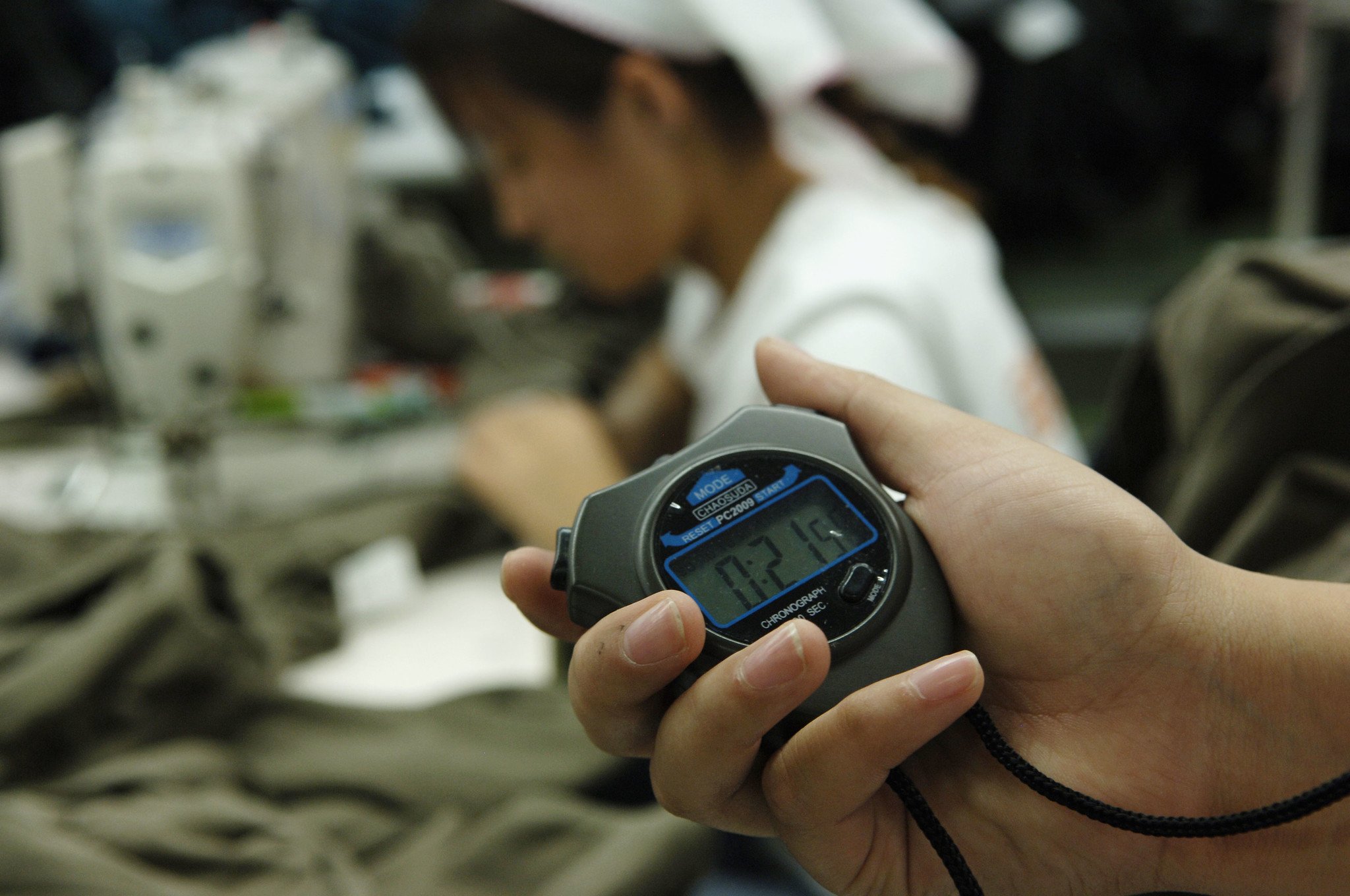
The United Nations singled out PT Astra Agro Lestari (AAL), the second-largest palm oil company in Indonesia, raising specific allegations of systemic human rights and environmental abuses linked to its palm oil production on the island of Sulawesi.
The allegations include land grabbing by operating without necessary permits on Indigenous ancestral lands and farming communities’ land; intimidation and criminalization of local communities peacefully protesting against AAL; and environmental degradation, such as pollution of water resources.
In June 2024, Friends of the Earth (FOE) released a report naming consumer brands, agribusiness traders, investors, and banks linked to AAL’s palm oil production.
Business & Human Rights Resource Centre invited AAL, its parent company, and the companies named in FOE’s report to respond to the allegations. Jardine Matheson, Astra Agro Lestari, Musim Mas, Neste Oil, L’Oréal, Procter & Gamble, Hershey, Wilmar International, KLK, Apical, Unilever, Kao, Mizuho Financial Group, SMBC, Mitsubishi UFJ Financial Group, Blackrock and Danone responded. Their responses are linked below.
The rest of the companies did not respond.
Related posts:

 EU: Palm oil lobbyists allegedly are trying to “undo” deforestation law, incl. granting “smallholder” exemptions, raising concerns for Indonesian rainforests
EU: Palm oil lobbyists allegedly are trying to “undo” deforestation law, incl. granting “smallholder” exemptions, raising concerns for Indonesian rainforests
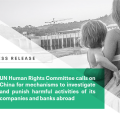 Press Release – CICDHA: UN Human Rights Committee calls on China for mechanisms to investigate and punish harmful activities of its companies and banks abroad
Press Release – CICDHA: UN Human Rights Committee calls on China for mechanisms to investigate and punish harmful activities of its companies and banks abroad
 New publication: Promise, divide, intimidate, and coerce: Tactics palm oil companies use to grab community lands. Summary Edition
New publication: Promise, divide, intimidate, and coerce: Tactics palm oil companies use to grab community lands. Summary Edition
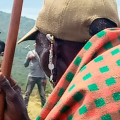 Call to Sever Ties with Tanzanian Government Over Latest Human Rights Abuses Against the Maasai
Call to Sever Ties with Tanzanian Government Over Latest Human Rights Abuses Against the Maasai

A decade of displacement: How Uganda’s Oil refinery victims are dying before realizing justice as EACOP secures financial backing to further significant environmental harm.

Carbon Markets Are Not the Solution: The Failed Relaunch of Emission Trading and the Clean Development Mechanism

Govt launches Central Account for Busuulu to protect tenants from evictions

Top 10 agribusiness giants: corporate concentration in food & farming in 2025

Uganda’s top Lands Ministry official has been arrested and charged with Corruption and Abuse of Office, a significant event that will have far-reaching implications for land governance in the country.

A decade of displacement: How Uganda’s Oil refinery victims are dying before realizing justice as EACOP secures financial backing to further significant environmental harm.

Environmentalists raise red flags over plan to expand oil palm fields in Kalangala

Govt launches Central Account for Busuulu to protect tenants from evictions

Innovative Finance from Canada projects positive impact on local communities.
Over 5000 Indigenous Communities evicted in Kiryandongo District
Petition To Land Inquiry Commission Over Human Rights In Kiryandongo District
Invisible victims of Uganda Land Grabs
Resource Center
- LAND GRABS AT GUNPOINT REPORT IN KIRYANDONGO DISTRICT
- RESEARCH BRIEF -TOURISM POTENTIAL OF GREATER MASAKA -MARCH 2025
- The Mouila Declaration of the Informal Alliance against the Expansion of Industrial Monocultures
- FORCED LAND EVICTIONS IN UGANDA TRENDS RIGHTS OF DEFENDERS IMPACT AND CALL FOR ACTION
- 12 KEY DEMANDS FROM CSOS TO WORLD LEADERS AT THE OPENING OF COP16 IN SAUDI ARABIA
- PRESENDIANTIAL DIRECTIVE BANNING ALL LAND EVICTIONS IN UGANDA
- FROM LAND GRABBERS TO CARBON COWBOYS A NEW SCRAMBLE FOR COMMUNITY LANDS TAKES OFF
- African Faith Leaders Demand Reparations From The Gates Foundation.
Legal Framework
READ BY CATEGORY
Newsletter
Trending
-

 MEDIA FOR CHANGE NETWORK5 days ago
MEDIA FOR CHANGE NETWORK5 days agoA decade of displacement: How Uganda’s Oil refinery victims are dying before realizing justice as EACOP secures financial backing to further significant environmental harm.
-

 MEDIA FOR CHANGE NETWORK1 week ago
MEDIA FOR CHANGE NETWORK1 week agoGovt launches Central Account for Busuulu to protect tenants from evictions
-

 WITNESS RADIO MILESTONES1 week ago
WITNESS RADIO MILESTONES1 week agoTop 10 agribusiness giants: corporate concentration in food & farming in 2025
-

 MEDIA FOR CHANGE NETWORK1 week ago
MEDIA FOR CHANGE NETWORK1 week agoCarbon Markets Are Not the Solution: The Failed Relaunch of Emission Trading and the Clean Development Mechanism

